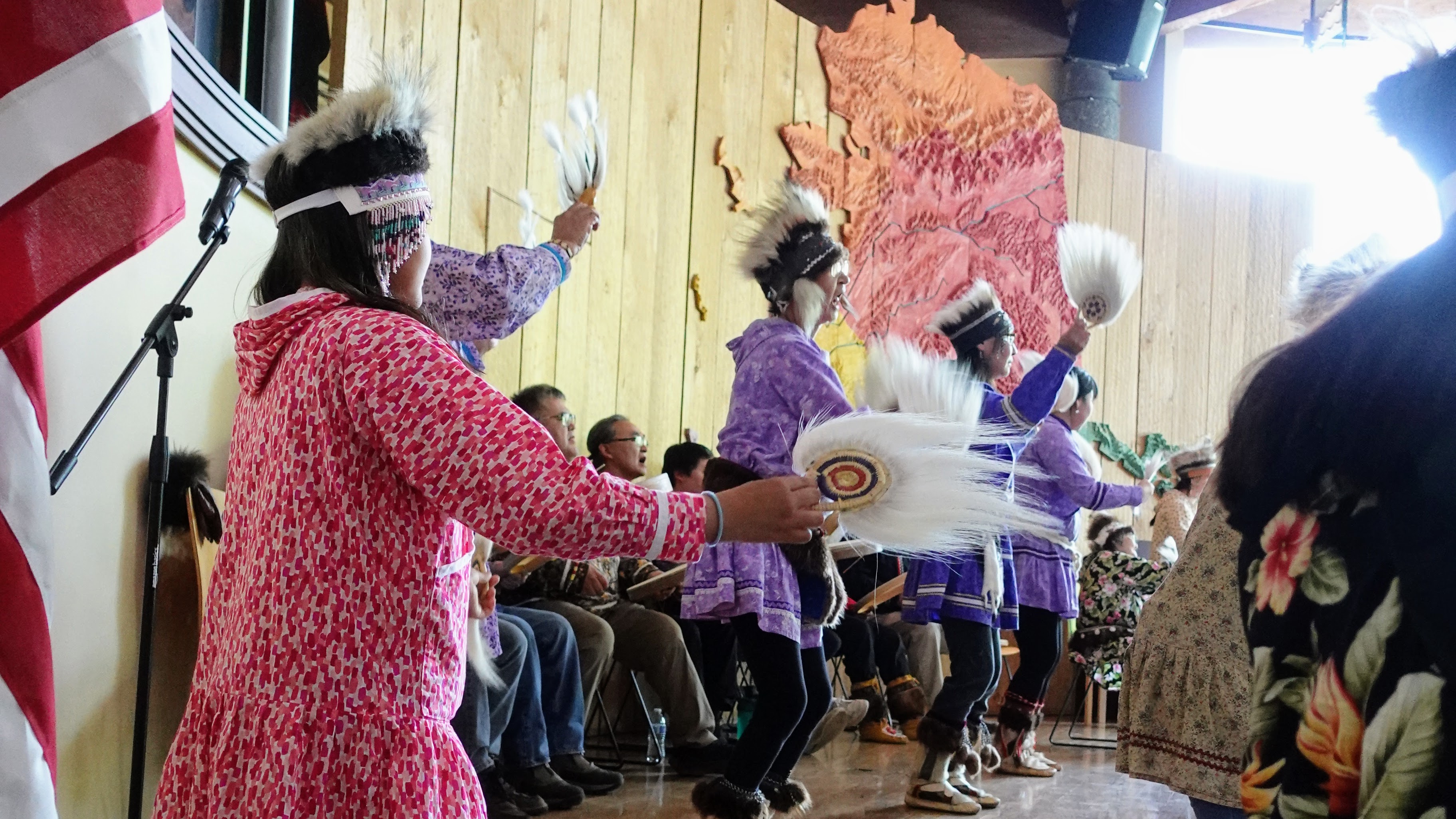The power of people-centred service design and integration
An evaluation of my formal learning from The Southcentral Foundation’s core concepts and care model underscored some invaluable ideas for application at home.
This article focuses on the impact of comprehensive, culturally rooted, trauma informed services that consider the social determinants of health throughout delivery; from safety in therapeutic communities to deep community consultation.
NUKA is an Alaska Native word that means ’strong giant structures and living things’ and is the name of the model of care developed by Southcentral Foundation in Anchorage, Alaska’s biggest city.
It’s significant that the model is named using an indigenous word, it represents, among other things, a reclamation of languages that are at risk of loss and a deep respect for the Dena’ina homeland on which SCF is built. This in turn represents an innate reverence for the voices of the Alaska Native people, voices that drive Southcentral Foundation (SCF) forward and inform everything that they do. The NUKA model is based on this relationship with the community. In fact, being ‘relationships-based’ is considered to be key to their success in inclusively and cost-efficiently transforming the overall wellness of the Alaska Native population.

Southcentral Foundation uses the word ‘customer-owners’ to refer to the people that access their health service. Customer-owners are named as such because, a result of the Indian Self Determination act of 1975*, they both access and own the healthcare system. This designation is a form of reparation and remedy designed to address the shortcomings of a formerly broken care system in the region. The foundational principle of customer-ownership is designed to put agency and control back in the hands of and to empower the Alaska Native community to make healthcare decisions based on their own unique values, needs and stories.
The SCF vision is to achieve multidimensional wellness for the Alaska Native population, whether remote and tribal or metropolitan and central - their approach considers physical, emotional, mental and spiritual health as equal component parts of full wellness. They are not driven by the national statutory boxes that need to be checked in order to be profitable or deemed efficient or basically viable - but instead they are driven by the idea that social determinants aren’t separate from their symptoms and as such should be tackled on the same terms and in the same space.
Accessing support from a singular point de-stigmatises the taboo around seeking special mental health help and normalises the universal nature of need
The consequences of this unique model are profound. SCF’s *HEDIS outcomes are above the 75th percentile and they report a 97% customer-owner satisfaction rate. In fact, it is built in to their ‘Operational Principles’ that the ‘interests of the customer-owner drive the system to determine what we do and how we do it’ and that they work ‘together with the customer-owner as an active partner’. It is fundamental to SCF's model that their actions are driven by the evolving needs of the Alaska Native community.
In practice, this means building trust and dialogue through consistently engaging in community consultation; asking the community for their thoughts, feelings and feedback and using the data to make all policy decisions and operational changes. They’re consistently assessing quality and propriety and redesigning services to meet the changing landscape according to what their community says their needs are each time they consult them.
In 1993, the Alaska Native community voiced that their top needs were domestic violence, child abuse, child neglect, behavioural health and addiction - many of which, you’ll notice, are pressing public health concerns tied to social and environmental factors. In 2018, after 25 years of addressing the roots of those social symptoms, the community’s needs had shifted more towards physical health considerations like oral health, obesity, cardiovascular health and heart disease - conditions that are more amenable to clinical primary care. This shift illustrates the population wide arc of behaviour change that is possible when the voice of the community and the social determinants of their wellness - as they themselves see it - are considered, every step of the way.

The efficacy of this community consultation is underpinned by another of the SCF ‘Operational Principles’ - ‘emphasis on the wellness of the whole person, family and community including physical, mental, emotional and spiritual wellness’.
The Alaskan Native people, and many other indigenous populations worldwide, have historically been affected by the symptoms of generational trauma, adverse childhood experiences, chronic pain, housing instability, food insecurity and poor prospects for future socio economic strength. Alaska has almost twice the national average of reported child abuse cases and more than half of those children identify as Alaska Native or American Indian. More than four out of five American Indian and Alaska Native women have experienced violence in their lifetimes and are 2.5 times more likely than non Hispanic white women to lack access to the support that they need.
SCF believes that increased trust and good relationships lead to increased access to the kind of behavioural health services that address the roots of these social health issues. A reduction in stigma and better access to support resources in turn leads to increased wellness for families and communities throughout the Alaska Native population.
This process of breaking down the cycle of harm caused by the social determinants of poor behavioural health begins with the integration of Behavioural Health Consultants (BHCs). BHCs are SCF's advocates for onward referral for all presenting concerns, from anxiety and Traumatic Brain Injury to sleep hygiene and childhood behavioural concerns.
BHCs have an MA in clinical social work or psychotherapy and are skilled at triaging, responding flexibly and managing a longitudinal caseload. They are integrated into every part of Primary Care, embedded within and available to each department so that all caregivers can begin to tackle social determinants or the root causes of the presenting problem, there and then, on the same day.

80% of behavioural health presentations happen in medical primary care settings, and when needed, customer-owners’ access to behavioural and mental health support is almost immediate. The providers of that support are indistinguishable from the team that is taking care of each customer-owner’s medical primary care - this ‘single point of access’ design de-stigmatises the taboo around seeking special mental health help and normalises the universal nature of need.
Integration in this way means that behavioural health is a consideration for every customer-owner from the very beginning of their journey of care, not necessarily as a response to a crisis - from pre-conception to death, from dental to maternity care, almost 24 hours a day.
For example - whilst a dental appointment seems like an unlikely place for behavioural health presentation and it wouldn't be expected that a customer-owner shares deeply or asks for help with a social issue in this context - it is a private, safe space in which a disclosure of domestic violence (DV), for example, could be made and, when that time comes, SCF have a system to respond to it.
The #1 determinant of health is confidence - SCF asks 'does life go to you, or do you go life?’
Behavioural Health Consultants at SCF value the mind:body connection and help customer-owners move toward emotional wellness in whatever way that suits them personally. They work with the department’s 'Community Resource Specialist' - a kind of medical social worker - to connect customer-owners with appropriate related services, carving out an opportunity for care teams to integrate cultural continuity and to consider the social determinants of the health of their customer-owners. Together, they design a package of care that meets the customer-owner's social and emotional needs which may well be a mix of clinical and community based care.
This package of care is fully connected to community based partners so as to integrate cross agency support and ensure all parties have a full picture of what is happening for the customer-owner. Being comprehensive, efficient and considerate of the social determinants of health like this has moved SCF from the 5th to above the 75th percentile in successfully addressing non clinical behavioural health cases and the 90th percentile of clinical.
One example of how SCF integrates their care into community based settings is Quyana Clubhouse, a day access centre for acute mental health cases - it isn't a clinical ward, it's daily support from the healthcare provider but in a community, culturally appropriate, socially safe setting.

The social return on investment of embedding Behavioural Health Consultants and Community Resource Specialists into primary care outweighs the associated operational overheads. The prevention potential is more valuable than the cost of integrating access to behavioural health services at every level of primary care, It represents many dollars saved. It costs SCF $7500 per person, per year for full comprehensive healthcare, which is much lower than other high social determinant populations in the US.
The NUKA model empowers customer-owners to choose how they engage with their care and so, they must be met where they’re at, the care structures and services here are designed to bend towards what the community will engage with, what they are comfortable with and what aligns with their traditional values.
SCF consider the number one determinant of health to be confidence - they ask customer-owners 'does life go to you, or do you go life?’ thereby fostering a sense of agency and self determination for the Alaska Native community.
The NUKA model applies the revolutionary idea that to be wholly well is to be wholly valued, connected and heard, I was lucky enough to witness this during my time learning from The Southcentral Foundation’s core concepts and care model which underscored some invaluable ideas for application at home in the UK.
*Healthcare Effectiveness Data and Information Set - a set of performance measures widely used to evaluate the healthcare sector in the United States.
* The Indian Self-Determination and Education Assistance Act of 1975 was enacted by the United States Congress to allow Indian tribes to have greater autonomy and assume responsibility for programs and services administered to them on behalf of the Secretary of the Interior.